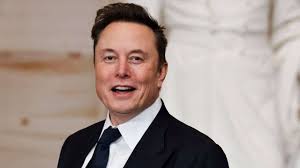
By Adeyemi Adekunle
Tesla CEO Elon Musk has spearheaded a group of investors in a staggering bid of approximately $97.4 billion to acquire OpenAI, the influential artificial intelligence company co-founded by Musk himself in 2015. The aim of this ambitious takeover is to revert OpenAI to its original nonprofit mission, a vision that Musk insists has been compromised since the company transitioned to a for-profit model under the leadership of current CEO Sam Altman.
According to a report by The Wall Street Journal, Musk’s offer comes amid escalating tensions between him and Altman, which have boiled over into a legal quagmire as the two spar over the future direction of the company. Musk departed from OpenAI in 2019 and has since been vocal about his discontent regarding its trajectory, suggesting that the shift toward profitability strays from the ethical foundations on which OpenAI was built.
Altman, unfazed by Musk’s overtures, publicly rejected the proposal on social media platform X—which was formerly known as Twitter—by quipping, “No thank you, but we will buy Twitter for $9.74 billion if you want.” This tongue-in-cheek response exemplifies the icy relationship between the former partners, who now find themselves on opposite sides of one of the tech industry’s most closely watched battles.
Musk has not held back in his criticism of Altman, labeling him a “swindler” and insinuating that he has exploited the nonprofit nature of OpenAI for personal gain. In a video posted on his social media account, Musk claimed that Altman has amassed billions through his role at OpenAI, highlighting an alleged $10 billion in stock that Altman has received. This claim raises questions about the integrity of leadership at a company that Musk insists should prioritize ethical AI development over financial gain.
The narrative surrounding OpenAI’s transformation raises ethical dilemmas that have wide-reaching implications within the tech industry. Critics of the for-profit model argue that it may prioritize shareholders over societal implications, thereby undermining AI’s potential benefits. Musk has consistently warned that the commercial pressures associated with funding and profit generation could lead to unchecked advancements in AI, resulting in risks that outweigh the benefits.
As tensions mount, stakeholders are closely monitoring developments. Investors have raised alarms about the strategic direction of AI companies that prioritize rapid development over ethical considerations. The outcome of Musk’s bid could set a precedent in the tech world, potentially influencing the operational frameworks of other organizations in the AI sector.
The legal aspects of this acquisition attempt also add complexity to the situation. With Musk’s public accusations and Altman’s rebuttals, it remains to be seen whether this high-stakes drama will lead to protracted litigation or whether discussions can be salvaged through negotiation.
In the world of tech, where innovation meets morality, the future of OpenAI remains uncertain. As the dialogue between Musk and Altman unfolds, industry insiders are divided over who will emerge victorious. The resolution could very well reshape the landscape of artificial intelligence and redefine the ethical boundaries within which such entities operate. In a time when AI’s capabilities are rapidly advancing, the stakes have never been higher.



